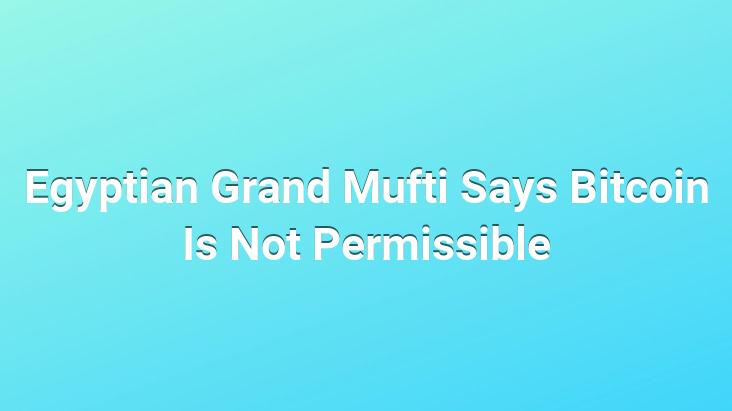Chief Mufti Shoghi Allam, Egypt’s highest religious authority, said Bitcoin trading is not permissible according to Islamic rules. In a fatwa issued on Monday, Allam wrote that Bitcoin is an “acceptable form of trade” and therefore not permissible to trade.. While the chief extortionist said that Bitcoin could be used in crimes such as money laundering, he also stated that Bitcoin, which is not subject to state control, could harm the Egyptian economy.. Evaluating Bitcoin according to Sharia, Allam made the following statement:
“Bitcoin is not permissible under Islamic rules because it causes harm to individuals, groups and institutions.” One of the chief mufti’s advisers told the BBC that Bitcoin was “used to transfer money directly to terrorists”. It’s hard to say that the Egyptian government is also a fan of cryptocurrencies.. The government has previously said that Bitcoin is “a form of fraud without legal responsibility.”. In our country, Diyanet also made a statement about Bitcoin and said that it is “not permissible.”
The founder of Blossom Finance, Matthew Martin thinks Bitcoin is “halal”: “Bitcoin as a payment network is halal. In fact, Bitcoin offers more than traditional closed banking networks.. Unlike traditional bank networks that use private ledgers with no guarantee that the producer actually owns the sole-product, it mathematically guarantees that the Bitcoin transacter actually owns the sole-product.. Traditional banks operate using the fractional reserve principle, which is forbidden in Islam.”
Matthew Martin thinks that Bitcoin is in line with Islamic rules, but he does not think that it will be accepted as a “currency” under Islamic rules:
“But when we look at history, Islam only recognized goods with basic value such as gold (Dinar), silver (Dirham), rice, dates, wheat, barley and salt as money.. Considering exactly what counts as money, Bitcoin probably doesn’t fall into that area.”
Join our Telegram channel to be informed about all developments and posts!

